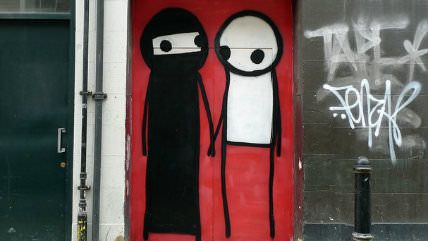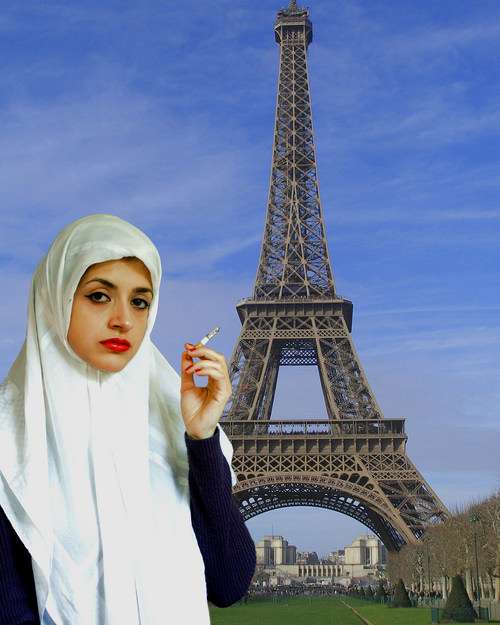European Court of Human Rights: French Facial Veil Ban Isn't Discriminatory Against Muslims


As Americans are arguing over Christian corporations and birth control, Europeans are grappling with their own contentious case concerning religious freedom. Today, the European Court of Human Rights ruled to uphold France's ban on facial veils, which was instituted under Nicolas Sarkozy in 2011. Since then, hundreds of women have been fined up to 150 euros for defying the ban, according to The New York Times.
French Muslims protest that women wearing the full-face veil, known as the niqab, is a part of the Muslim faith. An unnamed 24-year-old French woman brought the case against her government, saying the law was discriminatory and, as a practicing Muslim, it violated her freedom of conscience rights.
French officials said the ban was needed because facial veils presented a security risk by hiding a wearer's identity. They also fretted that without it, "Islamic separatism" would erode French culture.
The European Court of Human Rights didn't buy the security-risk rationale. In a statement, it said that the government's objective "could be attained by a mere obligation to show their face and to identify themselves where a risk for the safety of persons and property was established, or where particular circumstances prompted a suspicion of identity fraud."
However, the court also didn't take to the plaintiff's claim that the ban violated her religious freedom. Because "the ban was not expressly based on the religious connotation of the clothing in question but solely on the fact that it concealed the face," the ban couldn't be characterized as discriminatory against Muslims, the court said.
Rather, the niqab ban constituted "a choice of society," and thus banning them could be "regarded as proportionate to the aim pursued, namely the preservation of the conditions of 'living together'." This is apparently what passes for "objective and reasonable justification" in the E.U.
Since France passed the niqab ban, only Belgium has followed suit, though numerous countries—including the U.K., Germany, the Netherlands, and Switzerland—have debated it and/or banned it in certain situations. These bans are sold as secularist, progressive, and feminist. But—as Shikha Dalma wrote here in 2010—they rely on the same principles driving religious fanaticism, conservatism, and patriarchal societies: A desire to force one's beliefs and practices on others and an idea that women shouldn't be allowed to make their own choices.
Burqas and facial veils "are certainly a tool of female oppression in Islamic theocracies where sharia law sanctions violence against women who violate its strictures," wrote Dalma. "But that is not true in liberal democracies where the reason government exists is to protect personal choices from physical violence."


Show Comments (26)